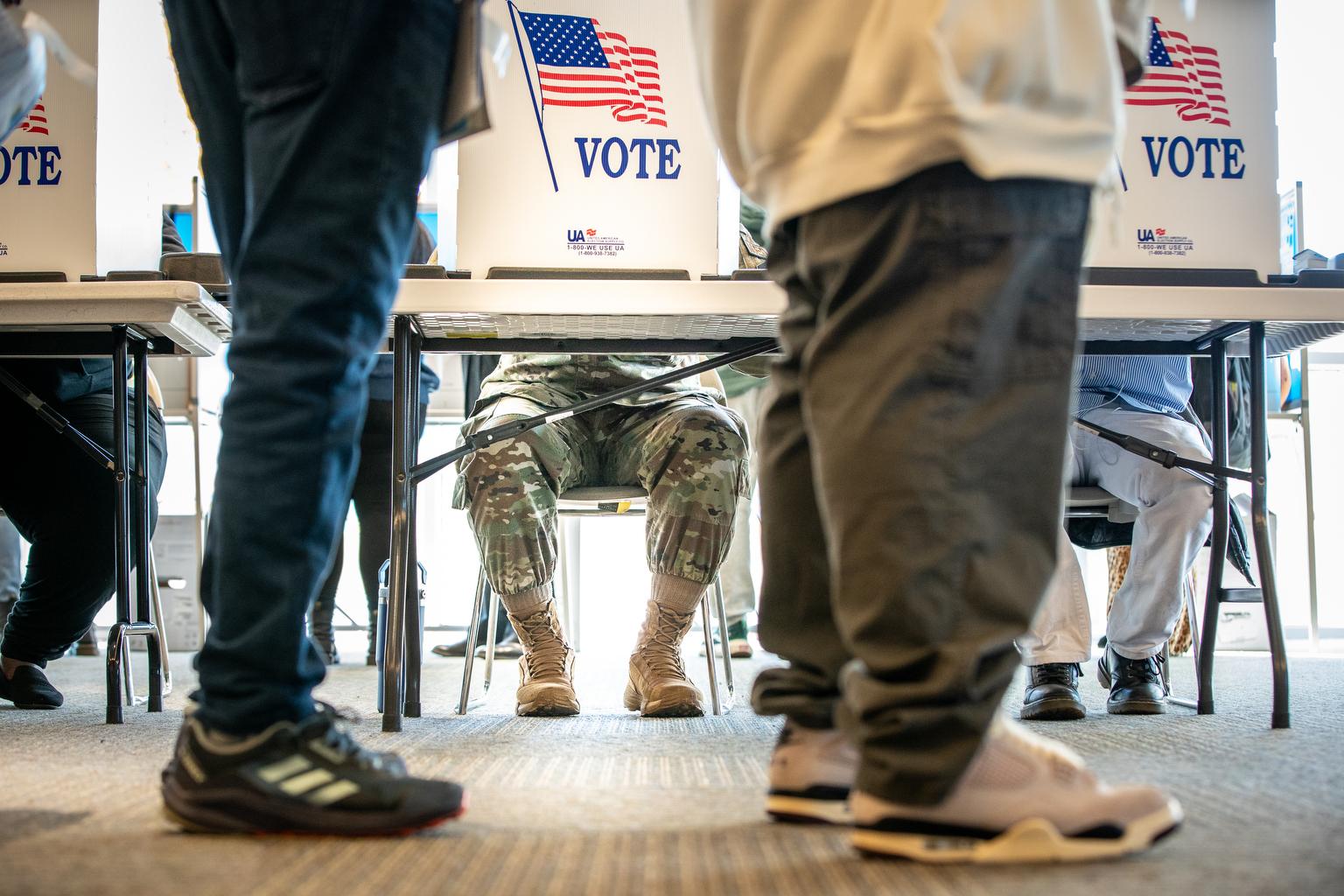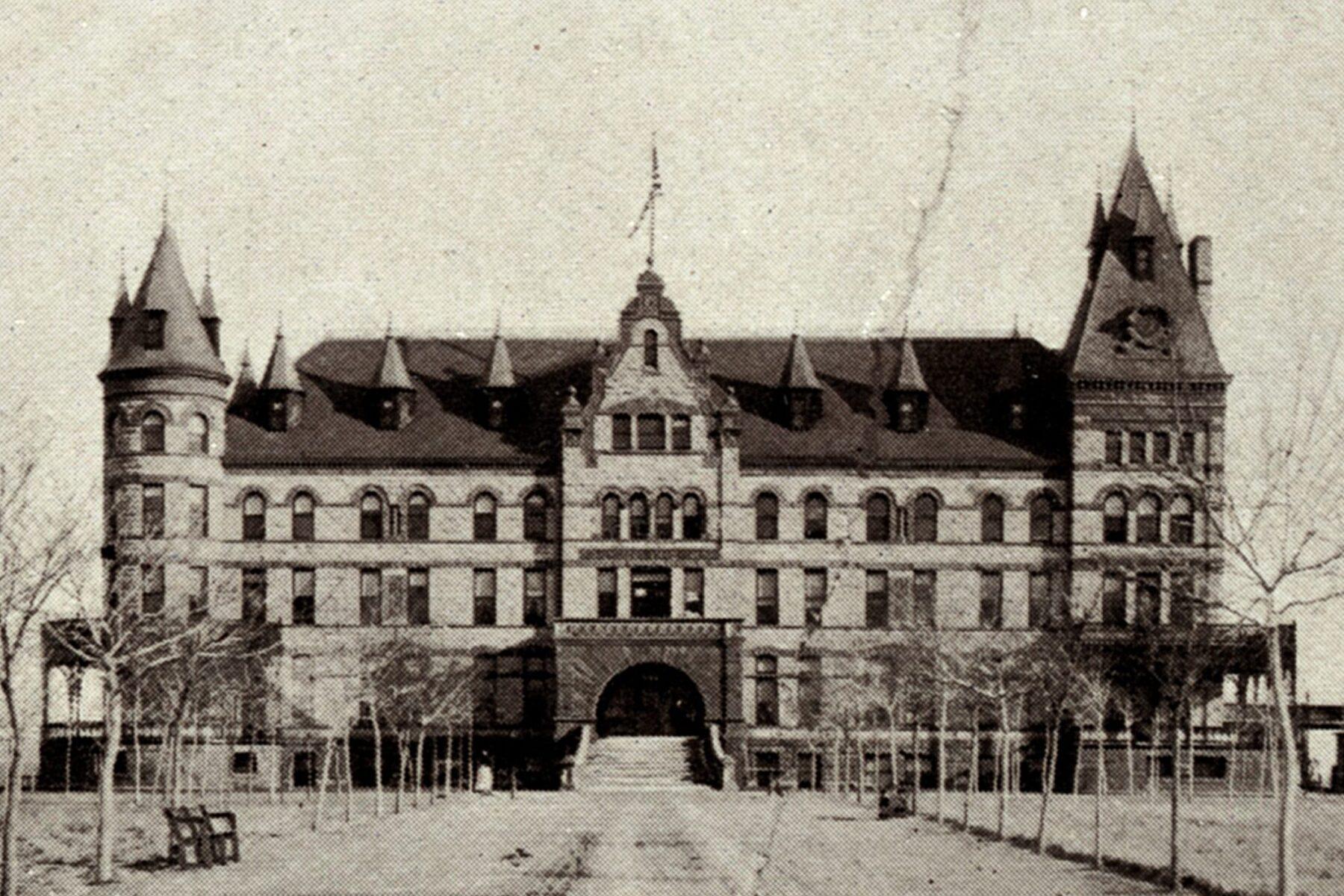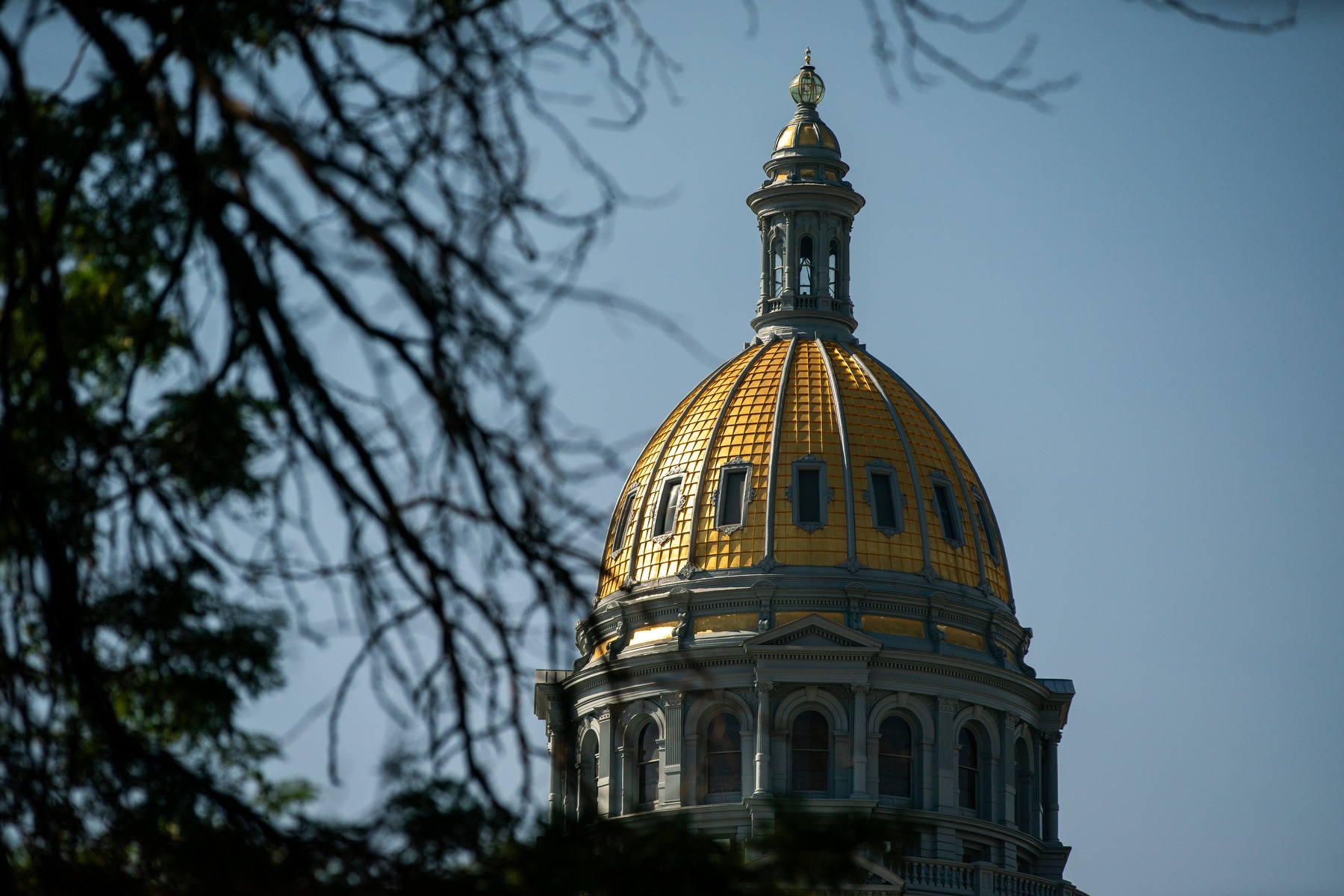
The news earlier this month that Colorado had sent its voter file to the Trump administration was a reminder that the state’s list of registered voters — their names, home addresses, birth years and party affiliation — is officially a public record.
CPR recently heard from a voter from Littleton wondering what she could do to protect her personal private data, and to remove some of her information from the public voter registration database.
The woman — as a self-described “sort of a privacy freak,” she didn’t want to use her name in this story — said she doesn’t want to be harassed or targeted and doesn’t trust the Trump administration with her voter information.
She’d already driven in person to her county clerk’s office to find out what she could do and had learned that Colorado does have a process for removing personal data from the voter file, but she said she found it burdensome and confusing.
How the confidential voter program works
Colorado passed a law in 1992 to allow people to keep their voter information confidential in certain circumstances. An individual can remove information like their address, how frequently they’ve voted and party registration from the public database. But there’s a catch: legally, that option is only open to people if they believe their information could be used to harass or harm them.
To go confidential, people have to go through their local county clerk and sign a form.
At the bottom they’re asked to sign below the following statement: “I swear and confirm, under penalty of perjury, that I have reason to believe that I, or a member of my immediate family who resides in my household, will be exposed to criminal harassment, or otherwise be in danger of bodily harm, if my address is not kept confidential.”
However, there isn’t an enforcement mechanism and some clerks' offices say they add anyone who requests it to the confidential voter list.
According to the Colorado Secretary of State’s office, the only public-facing information for a confidential voter is name and voting and party affiliation history. What’s hidden for confidential voters is address and year of birth. The state also keeps certain sensitive information confidential for all voters, like their full birthdate and Social Security Number.
During the most recent legislative session lawmakers updated the law to make it easier for people to become a confidential voter. It will no longer require a $5 filing fee or for a voter to appear at their clerk’s office in person. Instead, a free electronic version of the form will be available starting January 1, 2026.
The new law also adds first responders, as a group, to those who can make their information private without attesting to any specific fear of threat.
That classification “encompasses police officers, firefighters, EMT, paramedics, (and) dispatchers, whether they are retired, active, volunteer,” explained Republican Rep. Dusty Johnson of Fort Morgan, the bill’s main sponsor. Johnson has worked as an EMT and plans to get recertified this fall.
“They just have to state that they're in that profession and then it just will make their voting information hidden. So if they go to vote, then you pull up their name saying they voted, it no longer pulls up where they live when people buy databases.”
The voter rolls aren’t the only place where lawmakers have been adding privacy protections
Under Colorado law, certain people can request to have information like their home address and phone number hidden in public records. Traditionally, that power has been restricted to people at high risk of being targets, like police officers and judges. Health workers in sensitive fields and victims of domestic violence, stalking and some other crimes can get added protections including a substitute address.
And as harassment of civil servants has become more widespread in recent years, the legislature has expanded privacy protections.
In 2021 Colorado passed a law that makes it a misdemeanor to publish personal information about public health workers on the internet if it poses an imminent or serious threat to them. The law also allows those workers to request certain personal information be redacted from publicly accessible online government databases.
A year later, the legislature passed the election worker protection act, in response to threats and harassment following the upheaval of the 2020 presidential election. In addition to increased penalties for threatening election workers, it also made doxxing — that is, maliciously sharing their personal information on the internet — illegal.
“Election officials and personnel who were fearful of imminent and serious threats could request that their information not be public. And so that is not only the voter file, but it's also the land recordings or the assessor's information,” said Jefferson County Clerk and Recorder Amanda Gonzalez.
Also in 2022, the state expanded the privacy protections for a range of public workers, by making it illegal to post their personal information on the internet and allowing them to request to have personal information removed from government websites. That protected information can include home address, telephone numbers and personal e-mail accounts.
The ‘protected persons’ law now applies to a host of professions, including reproductive healthcare workers, code enforcement and animal control officers, law enforcement, and prosecutors among others.
In the wake of the Minnesota assassination, public officials are more worried about their own information
Colorado’s state campaign finance database, TRACER, was taken down for much of last week so those state lawmakers who wanted to could remove their home addresses and phone numbers from its records.
The Colorado Secretary of State’s office said so far 55 Colorado officials — including lawmakers, county commissioners, clerks and others — have asked to remove some of that personal information from TRACER. A campaign finance rule passed years ago allows elected officials to keep that information out of the public-facing database, but it is still collected.
But in helping elected officials feel safer, this privacy measure reduces what the public can learn about their representatives.
“There's always going to be a tension between those two things. And perhaps there's more of one now because of the political climate that we live in and the fact that we've had so many awful things happen over the past few years,” said Jeff Roberts, the head of the Colorado Freedom of Information Coalition.
Editor's Note: An earlier version of this story incorrectly stated that 55 Colorado lawmakers have removed their home addresses from the campaign finance database. That figure is for all officials required to file campaign finance paperwork with the Secretary of State’s Office.









